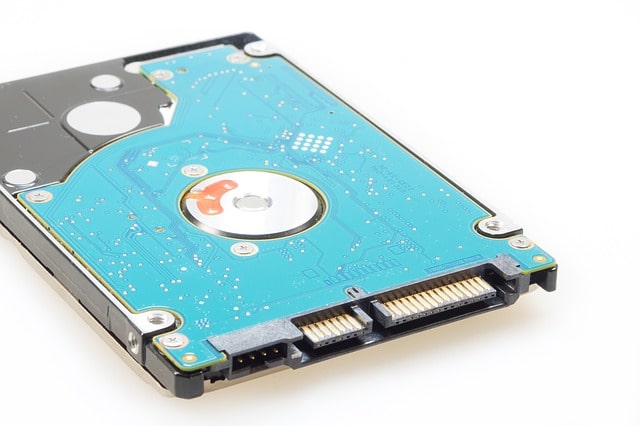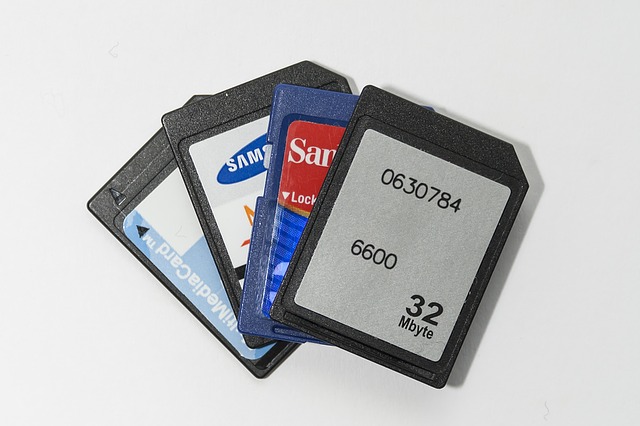When your laptop needs repairs or something just isn’t working correctly, there can be some difficulty discussing the problem for one major reason: people don’t understand the different parts when they are actually talking about it. When you need something fixed but can only explain it as “that thingy that spins,” there is a breakdown in communication that can be difficult to overcome.
That being said, it is almost impossible for people who don’t work with laptops to know all of the ins and outs of the parts. That is why we have broken down some of the most important pieces to know:
Laptop Parts to Know: Processor
When it comes to parts that break down, the central processing unit (CPU) is the most common victim. It is also the thing that most people think they know about, but they are really in the dark. This laptop component acts as the controlling part of your laptop computer.
Often in advertisements or reviews, you will hear about the processor speeds, which are measured in gigahertz (GHz). Most often, you will have a multi-core processor that has more than one processor core on the same chip. These are the best computers for those who need to do a lot of computing, run a lot of applications, or game. Speed ratings can help you to get an idea about the speed of each individual core. The faster the speed of the CPU and the more core the laptop processor has, the more tasks it can do at the same time. Most often, people won’t even have to worry about this number because the most we do is browse the internet or type in documents. Still, this is one of the most important pieces of the puzzle, so it is important to know what it is.
Parts to Know: Hard Drive

Another critical part of your laptop, the hard drive is the memory storage where everything goes. With a big hard drive, you can install more, use larger programs, and save more files. Once again, most laptops have adequate space on the hard drive for what you need. For those who need it, some higher end hard drives have hundreds of gigabytes of storage space. Typically, a hard drive will run at 5,400 rpm, but you can get a performance boost with a 7,200 or even 10,000 rpm hard drive.
Another option is to use an external hard drive that you attach to your computer via USB. This is an option for those who want to keep work separated or those that need to share large amounts of data.
Again, since it is an important part of your laptop, it is also one of the primary parts to have something go wrong. If you hear a clicking sound, it probably originates at the hard drive
Trackpad
The Trackpad or touchpad on your laptop is the interface that allows you to use your finger to control the mouse. Since most laptops do not have mice, the Trackpad helps you to do anything with just a few movements of your fingers. Most people don’t realize that you can actually customize the Trackpad to meet your needs.
Unfortunately, Trackpads tends to be very touchy and they will eventually break or wear down with use. Most people supplement with a wireless mouse, but they can be bulky.
System Memory of a Laptop
Another important laptop part to know is the random access memory or RAM. This helps your laptop to run faster. If you have a lot of RAM, your computer will be able to run more programs simultaneously as well as work with multimedia programs.
For general web browsing, you will need around 2 GB of RAM. However, the more you have, the better.
Laptop Screens
Of course, most of us know what and where the screen is, but you may not realize everything you need to know about it. Most laptop screens use a thin liquid crystal display (LSD) screen. The number of pixels on the screen determines how clear the picture is, and you have to ensure that the resolution matches that number. The more pixels you have, the more detailed the picture will be. For those who need to pay attention to details in images, it is important to have a clear vision.
Some laptops have a touch screen capability, which can make screen replacement a bit trickier.
External Ports

You’d be surprised the number of words people have for these parts of your computer. The number of external ports you have will vary from laptop to laptop, but in general, you will almost always want more than you have. You want to have at least a few to connect a printer, smart phone, camera, or wireless mouse.
For those that will use a separate monitor or a projector, you want a VGA port as well. For those who take photos, videos, or some other projects that requite memory cards, you may want slots for those as well.
It isn’t uncommon for these ports to end up not working after some time – they are finicky.
Laptop Parts: Video Card
Also called graphics cards by many people, video cards generate the graphics on your laptop’s display. All laptop CPUs have a graphics controller that allows the computer to display basic videos and graphics on the monitor. The video card takes this a step further by taking some of the load off of the processor and helping the laptop to move smoothly when you watch movies, stream, work on photos, or even just watch YouTube. Some video cards will have their own system memories, which makes for a faster, more seamless performance out of your laptop.
If your laptop is broken or has something that isn’t working properly, you may be able to have it fixed. Even if you think that everything is a loss, at Dave’s Computers, we can at least help you with data recovery and getting your lost work back.
Looking for the Best Computer Services in New Jersey? Call: (908) 332-5051

